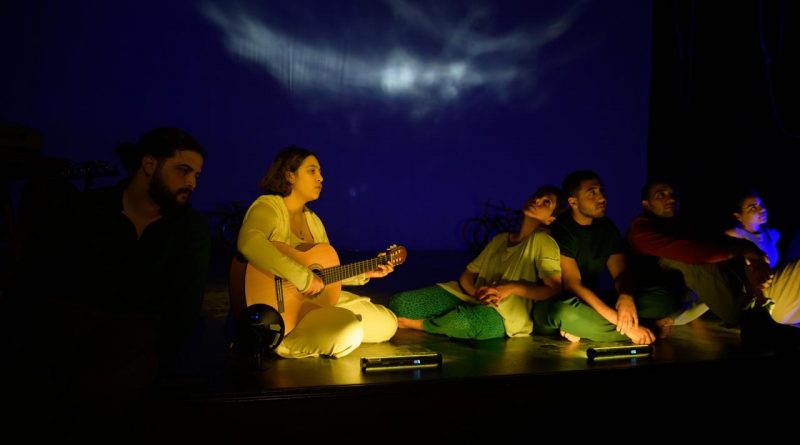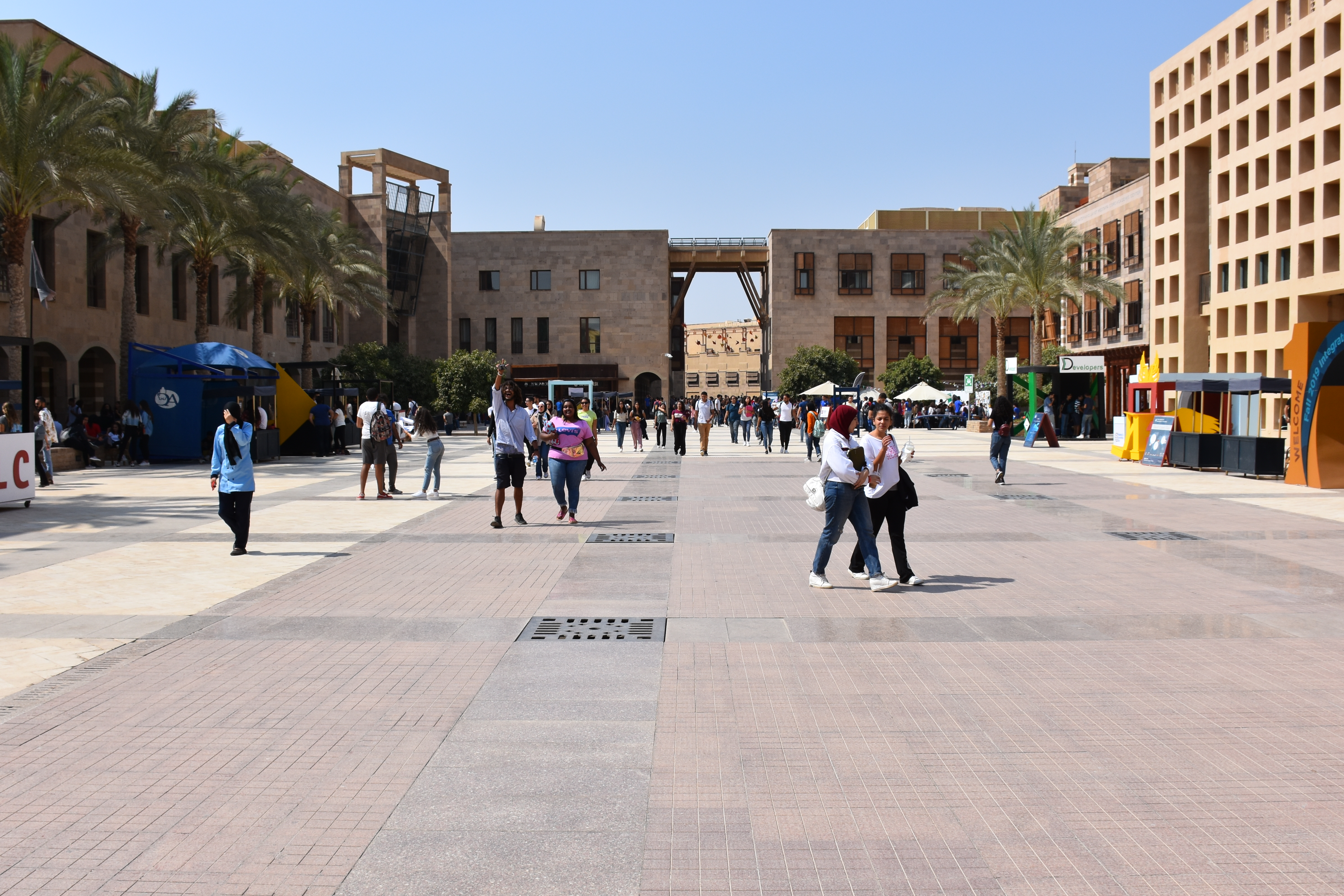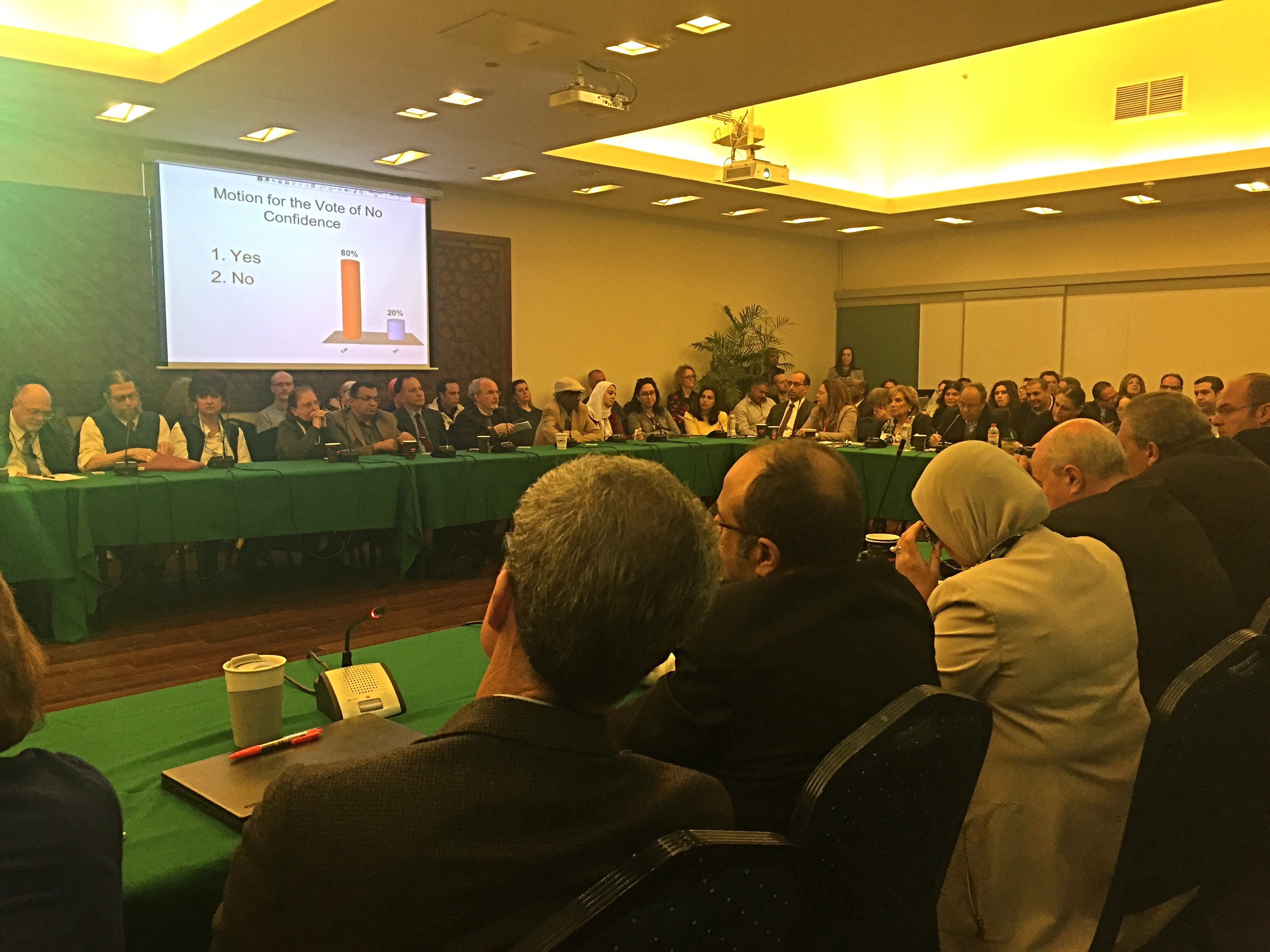Climate Change Takes Center Stage
Reporter: Malak Moussa, @MalakMoussa223
AUC’s Theater Department has tackled the issue of climate change in its latest stage production called “The Earth Turns”, an adaptation of a collection of short stories written by activists, scientists, health professionals, students, and artists from global institutions.
The gratis play, which drew on 12 stories of 12 days during COP27 and originally published in the We Still Have a Chance e-book, ran at the Malak Gabr and later Falaki Theaters from March 7 to 15.
The Earth Turns is an attempt to humanize the scientific discussion of climate change and the state of our world in order to elicit a more meaningful emotional reaction to the impending environmental disaster. It not only delivers an emotional response to the crisis but also provides a call to arms for solutions.
According to the United Nations Organization, “About two billion people worldwide don’t have access to safe drinking water today (SDG Report 2022), and roughly half of the world’s population is experiencing severe water scarcity for at least part of the year (IPCC). These numbers are expected to increase, exacerbated by climate change and population growth (WMO)”.
Each actor has taken on a role in which their character delivers a monologue about a topic related to climate change. The Earth Turns serves, in fact, as an event that works as a focal point for a bigger discussion, one that is not only about climate change but also about climate action.
“The fact that we were able to bring attention to a problem that is rarely discussed made it all the more enjoyable. The play I just saw was unlike any other I’ve ever seen. I’m glad I could contribute to the director’s vision,” said Habiba Abdelazim, the stage manager.
“I’m not saying my opinion about it has significantly changed; however, after watching the play, I do believe it’s a topic worth taking a look into and understanding more about it.”
The team of talented AUC actors in the play included Ibrahim El Shorbagy in the role of Mustafa, Youssef Fahmy as Pineapple Paul, Omar Gomaa, as Terry and Farida Abdelaziz who played the role of Fatma.
Haneen ElDemerdash played the role of Mariam, while Zeina Rostom was cast as Sarah; Hana Iskander played Mirabelle, and Seif Behairy played the role of Adham.
“I loved the outcome of the play. It’s a different play, at least for me, with new methods and ideas that were very interesting, Shorbagy told The Caravan.
“I liked that it gave me the chance to explore and evolve. The director also managed to work with sustainable lights and sounds that gave the piece more depth.”
While some in the audience felt the monologues were overstated and came off as preaching, others said they felt their understanding of the challenges we face with climate change improved thanks to the themes in the theater production.
“After watching the play I feel that I really appreciate the effort put into the play to help people understand climate change. The play offered a variety of examples or situations as well as several solutions and I definitely understood the consequences of climate change,” said Adam Tarek, an MICT major.
Economics major Celina Tadros found the play to be intriguing as it examined climate change and water scarcity from several perspectives.
“The interview scenario showed me how some individuals have committed their lives to save the world while others don’t care. It emphasizes the issue’s seriousness,” she said.
To highlight energy conservation, the production’s only source of power used throughout the performance was light fluorescence that had been positioned on stage and is controlled via cell phones that are battery generated or through solar panels.
“As this play is so distinct, its creative process is unlike any other. Initially, no set. The audience enters a strangely empty theater. We turned off the theater’s electricity to be as sustainable as possible as the performance is about climate change. As stage manager, I did not use the light board. I was backstage, but in other plays, I’d be in the control room,” said Abdelazim.
To make sure they were abiding by the play’s theme, no programs were produced in order to prevent any paper waste.
Instead, these were scanned using mobile phones. The production did not utilize any sound devices either; instead, they relied only on the singer’s voice and other instruments.
“I had a monologue where my character does not say his name or background, but rather gives the audience some kind of history lesson. I had to imagine where the character comes from, how he thinks, and create some kind of quirky humor to be able to get the audience’s attention in every single line I say,” said actor Youssef Fahmy.
“The process was hard and I had never played such a complicated character before so it was definitely something new for me.”



